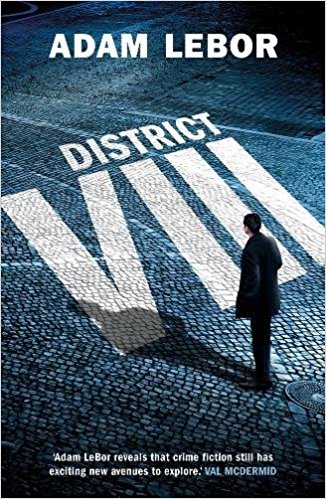Our hero is a homicide detective in Budapest, being of Romani extraction makes him both a curiosity and an asset. He is an asset because some major criminals are likewise Romani. Adolf Eichmann did not get them all.

Budapest is awash with Middle East refugees making their way west to Utopia. Reluctantly, the Hungarian government slows the migration to retain good relations with Western nations, while most people in the government try to profit from human trafficking. There are many wheels within wheels. So many I lost count and interest. Focus is not a word that applies in this book. Suffice it to say that everyone but our hero is corrupt to the core.
There is precious little detecting, and no police procedure to be found. Instead there is a thinly disguised critique of the corruption of Hungarian society and politics. It is laid on with a sledgehammer. The fittings and furnishings of every room are detailed. The attire of each actor spelled out. In this combination of Vogue and IKEA, motivation, character, and plot dissolve. Then their situation is traced back to the dire situation of Hungary trapped between Communism and Capitalism. The level of analysis is that of the ‘National Inquirer.’
There is some Gypsy lore and that was interesting to this reader, but it was not integrated into the plot for the simple reason that there was no plot. Just a pastiche of attacks on Hungarian society and politics. Everyone is either corrupt or incompetent. Fortunately some are both and that leads to their downfall.
In its eagerness to peach the book reminded me of the latter volumes of the Martin Beck series from Sweden. This series started out as low key police procedurals through which a reader learned much of Sweden but the books slowly became sermons on the evils of Swedish capitalism, as if the genocide of the 1930s Socialist eugenics program was somehow the good old days.
Skip to content
